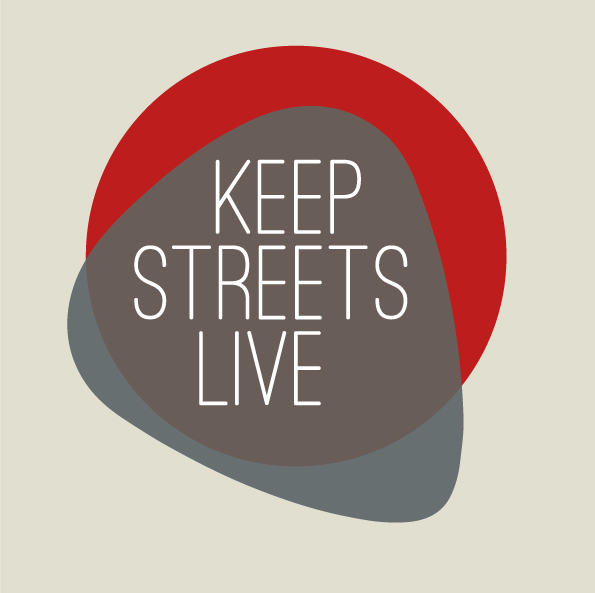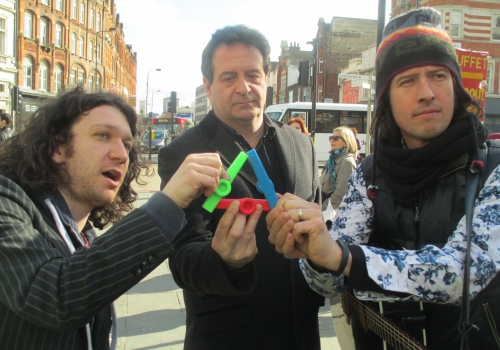Don’t Banish The Buskers, Keep Streets Live in Bath

https://www.change.org/p/bath-and-north-east-somerset-council-don-t-banish-the-buskers-keep-streets-live-in-bath
Freedom of expression in public space is under threat, yet again. This time the it is the buskers of Bath who are on the front line.
Using a controversial law which was introduced to tackle Antisocial Behaviour and has been described as a ‘law against nearly everything’ and heavily criticised on civil liberties grounds by former senior police officers amongst many others, Bath council have proposed to make it criminal offence to play musical instruments which incorporate any use of amplification on key busking pitches in the city including Kingston Parade, Abbey Churchyard and Abbey Green.
Any musicians who breached the proposed ‘Public Space Protection Order’ faces a criminal record and punitive fines. The millions of tourists who vist Bath each year would be deprived of one of the many popular attractions to the city, its vibrant and diverse street culture. The proposals would marginalise its street artists and musicians and devastate their livelihoods.
The Antisocial Behaviour Crime and Policing Act 2014 should not be used to stifle freedom of expression and criminalise musicians. Busking is a social activity, not an antisocial one. It is a tradition that enhances public space and deserves to be wholeheartedly supported and protected by the local authority. They already have robust powers available to tackle the inconsiderate behaviour of a small minority of performers that cause issues. Bath have opened a public consultation on whether to implement the new powers, this petition urges them to think again.
Bath’s buskers had made the headlines in September 2014 when the Rector of Bath Abbey, Edward Mason interrupted evensong one Sunday evening because he claimed that the noise from buskers in the Abbey churchyard, a world-renowned destination for street artists, was interfering with the service. His extraordinary, and in our view unnecessary decision to interrupt his own service created a lot of media interest and put public pressure on Bath Council to be ‘seen to do something’. However, the powers contained in the the Antisocial Behaviour Crime and Policing Act 2014 were not designed to regulate busking and the government gave assurances in Parliament that the powers contained in the new Act were only aimed ‘against the anti-social minority who give street performers a bad name; I might illustrate them as being aggressive beggars and drunken louts’. But Bath’s current proposals would affect all street musicians, not just the small minority who have caused issues. Rev Edward Mason has a strong personal preference for there to be no street music at all in the vicinity of the Abbey and has publicly called upon the council to expand the proposed restrictions to ban all music including unamplified performances and to only ‘allow’ busking on the periphery of the city, away from all the people! However the public spaces around the Abbey are in the very heart of the city and have long been a vibrant social and cultural hub where where the many hundreds of thousands of visitors to Bath each year have enjoyed high quality street music in between sampling the many other delights the city has to offer, including the beautiful Abbey. Whilst buskers should of course respect the shared use of the space by not playing excessively loud, it is not reasonable to expect busy streets bustling with tourists, visitors and residents to have the same qualities of silence and tranquility that can be found within the Abbey. Even on the days when there are no buskers, these are not quiet streets! There is a need for the buskers and the Abbey to learn to co-exist through an ongoing process of dialogue and negotiation. Seeking the use of coercive state power to impose a contentious silence upon an entire musical and artistic community is not the way to achieve this.
Many contemporary street musicians use some amplification to support outdoor musical performances. Some use quiet instruments or music technology which can’t work effectively without amplification. These include keyboards, electric violins, mandolins, guitars as well as loop pedals which are an increasingly common part of contemporary musical performances. Accomplished performances, many of which incorporate some amplification, are enjoyed by hundreds of thousands of people on the streets of Bath each year and are an established part of the grassroots cultural life of the city. The use of amplifiers can actually allow musicians to play and sing more quietly and still be heard just above the hustle and bustle of ambient street noise. This is especially important for vocalists who can face voice damage straining to be heard over the sounds of the street. It is not difficult to find a volume level which is not intrusive and volume levels can always be adjusted upon request. A ban on amplifiers to be consistent would logically have to extend to wind, percussion and brass instruments, all of which have the potential to be significantly louder than ‘amplified’ sound depending on the context. The issues in Bath have been caused not by amplification per se, but by excessive volume on the part of a small minority of individual performers. The local authority should target enforcement action against those performers who have caused a persistent issue with noise nuisance, whether amplified or unamplified, using their existing statutory powers such as the power to issue noise abatement notices and confiscate musical instruments under the Environmental Protection Act 1990. A blanket ban is a blunt instrument which strikes a discordant note.
The Keep Streets Live Campaign is a not for profit organisation which exists to protect access to public space for informal offerings of art and music. We have successfully challenged unjust and restrictive council policies towards busking in Liverpool and York where we have worked alongside the local authority and business communities in both cities to design a best practise guide for busking designed to resolve conflict and promote harmonious relationships between users of shared public spaces. We joined forces with Mark Thomas, Bill Bailey and Billy Bragg to oppose a law which criminalises street music in Camden and have campaigned against the use of the Antisocial Behaviour Act to target buskers in Canterbury where we are now working with the local authority there to develop a new busking guide. We are part of a mayoral taskforce in London established by Boris Johnson to make London ‘the world’s most busker friendly city’. We are urgently seeking the repeal of London’s anti-busking legislation by working with Liberal Democrat peer Lord Clement Jones whose Live Music Act 2012 was a landmark victory for live music in the UK making it much easier for grassroots venues to stage gigs.
We recognise that Bath Council face many challenges balancing the needs of different stakeholders in a shared public space. The busking community wants to work alongside the council, the Abbey and others to build positive relationships and resolve issues. Indeed, we support the use of appropriate enforcement measures agaisnt individuals who have caused issues through inconsiderate behaviour. However we strongly feel that using blanket powers contained in the the Antisocial Behaviour Crime and Policing Act 2014 is not the right way to safeguard the vibrant street culture that is part of the rich tapestry of city life in Bath and represent a form of collective punishment. In an open and democratic society, freedom of expression extends to street musicians in our public spaces and the sense of urban community that they help to provide. To that end, we call on Bath Council to refrain from using Public Space Protection Orders to exclude buskers, and instead to actively develop a street culture policy alongside the busking community and the Musician’s Union based upon mutual respect and dialogue that safeguards the busking tradition whilst addressing those who have genuine concerns.





